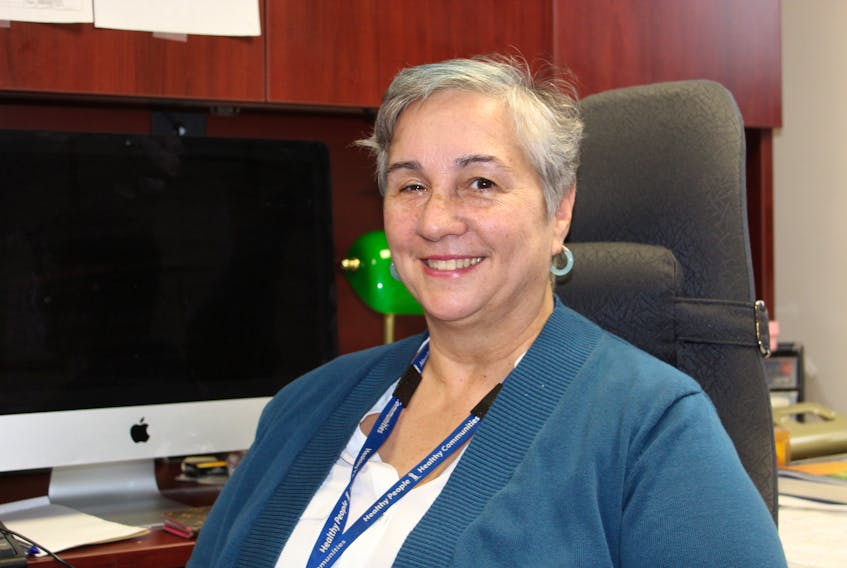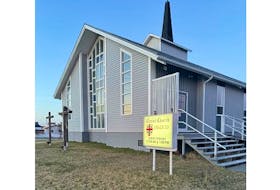Finding your voice on an important issue in life can be inspired in a variety of ways.
But finding a voice for others is a gift, one that may help someone without a voice.
Dr. Susan MacDonald has become that voice and has been a strong advocate for those requiring palliative care for more than two decades.
“There was one patient back years ago who literally changed my life,’’ she said Tuesday morning.
“It made a profound impact on me and how I approach patients that require palliative care.”
MacDonald was working as an intern on an internal medicine ward when she was tasked with caring for an older woman who suffered from advanced Parkinson’s disease. The woman had suffered several major strokes and was in a coma. MacDonald said the woman’s two daughters approached her and told her they wanted their mother to have a peaceful and comfortable death.
“My job is to help people live, to live the best they can for as long as they can. Many people see palliative care as a time of sadness, but we choose to try and focus on the positive things … So, they can make the most of whatever amount of time they have left.”
Dr. Susan MacDonald
This seemed like a reasonable and compassionate request to MacDonald.
However, the doctor she was working under noticed the woman has elevated levels of potassium and he said that no patient of his would die with those elevated levels.
“He made me give her enemas to reduce the levels and constantly was taking blood to test the levels,’’ MacDonald said.
“I can honestly tell you, I am not sure if I have ever been that mad in my life. I was angry. I was upset. I felt this was an assault on this woman and quite honestly thought I should be charged by the police with assault for what I was doing,’’ she added.
So, from that day forward, MacDonald decided she would do all she could to defend and protect those patients and has made it her life’s work to do so.
Palliative care is an approach that improves the quality of life of patients and their families facing the problems associated with life-threatening illness.
This is done through the prevention and relief of suffering by means of early identification, assessment and treatment of pain and other problems … physical, psychosocial and spiritual.
MacDonald, an associate professor at Memorial University’s Faculty of Medicine has devoted her medical career to deal with patients who require palliative care and their families.
It is this lifelong work that saw her awarded a Founders designation by the Royal College of Physicians and Surgeons of Canada (Royal College) for developing a palliative medicine subspecialty, one of only four Founders designations for creating and maintaining a new discipline.
MacDonald believes people should have a choice on how they want to die and this has been the driving force behind her work, locally and on the national stage, bringing attention to palliative care.
“My job is to help people live, to live the best they can for as long as they can,” she said.
“Many people see palliative care as a time of sadness, but we choose to try and focus on the positive things we can do for these chronically sick people, and their families. So, they can make the most of whatever amount of time they have left.”
It is this work that helped bring voices to the debate and creation of laws around Medical Aid in Dying (MAID), helped create a national work force survey on palliative care and provincially, she has been able to advocate for a greater role throughout our communities.
Her teachings help bring to the forefront the value in dying for future doctors and nurses by giving them real-life examples of what they will face and what the patients are facing.
MacDonald offers two-day learning programs across the province for family physicians, hospitalists, nurses, social workers and volunteers in Learning Essentials in Palliative and End of Life Care program.
Her medical career started as a nurse and it wasn’t until 1992, she got her start in palliative care.
“These patients and families are focused on hard sickness, something no one can take away,’’ she said.
“My job is to find out how I can help you live better. I am surprised people don’t embrace that more,’’ she added.
MacDonald said it is about what doctors can do for you, not do to you.









